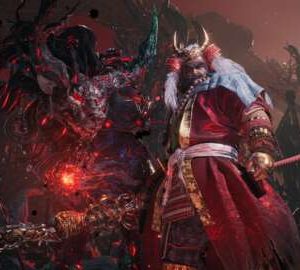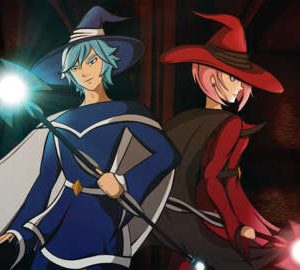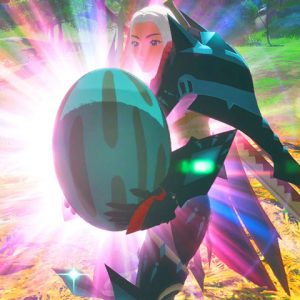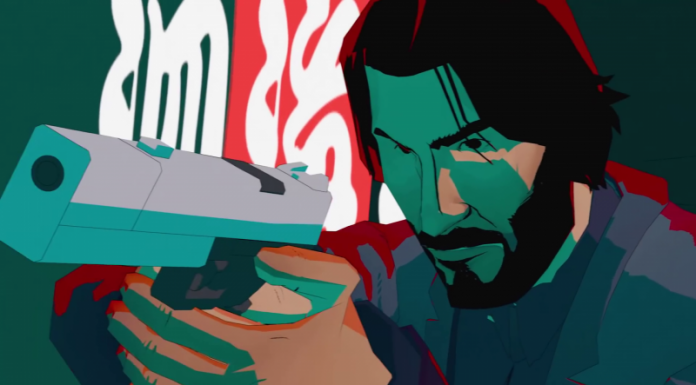
One of the biggest new features in Pokemon Sword and Shield is the Wild Area, an open stretch of land that is home to all sorts of Pokemon and the new raids. If you’re looking to complete your Pokedex, it’s also where you’ll be spending a lot of your time; you can find evolved forms of Pokemon out in the open here, for example. But the kinds of Pokemon you can encounter vary with the weather, which in turn varies throughout the Wild Area and changes every day. To make the most of the Wild Area, there are several things you need to know about how weather works.
The Wild Area is broken up into different sections, which you can see on your map. The name of each zone will pop up as you enter it so you’re always clear on where you are; if you’re looking up a Pokemon’s habitat in the Pokedex and it can be found in the Wild Area, the Dex will display the name of the section and what weather conditions you can find that Pokemon in. Different Pokemon will show up in different sections.
Pokemon Sword & Shield – 8 Tips To Get You Started
Please use a html5 video capable browser to watch videos.
This video has an invalid file format.
Sorry, but you can’t access this content!
Please enter your date of birth to view this video
By clicking ‘enter’, you agree to GameSpot’s
Terms of Use and
Privacy Policy
The Pokemon you encounter throughout the Wild Area and in Max Raids change with the weather, and there are certain Pokemon you can find only in a specific type of weather. You can check the weather from anywhere at any time using your map.
The effects of weather on Pokemon spawns are mostly logical. Harsh sunlight brings out more Fire-types, rain brings Water-type Pokemon, and snow brings the Ice-types. Water-, Electric-, and Dragon-type Pokemon spawn during thunderstorms. Some types of weather aren’t available until you make progress in the story, such as fog, which isn’t available until after you become Champion.
Below is a list of the weather conditions and a description of the symbols that represent them in the map and Pokedex.
Wild Area Weather Conditions And Symbols
- Regular sun — clear
- Sun behind cloud — cloudy (no in-battle effect)
- Raincloud — rain
- Cloud with lightning bolt — thunderstorm (rain with electric terrain)
- Snowflake — snow (hail)
- Snowflakes with wind — snowstorm (hail)
- Sun with bullseye center — harsh sunlight
- Rocks with wind — sandstorm
- Cloud with lines — fog (misty terrain)
In-Battle Weather Effects
Though there are many weather types in the Wild Area, there are only four possible types of weather conditions in battles. Weather can be activated by overworld conditions listed above, Pokemon’s regular moves and abilities, and the secondary effects of Max Moves used by Dynamaxed Pokemon. Weather conditions typically last five turns if different from the overworld weather, though certain items can extend the duration. Below is a list of the in-battle weather types and a summary of their main effects.
- Harsh sunlight: increases damage from Fire-type moves and decreases damage from Water-type moves; Solar Beam charges instantly; Synthesis, Moonlight, and Morning Sun recover more health; all Pokemon are immune to freezing; activates certain abilities
- Rain: increases damage from Water-type moves and decreases damage from Fire-type moves; Thunder and Hurricane hit consistently; weakens Solar Beam, Solar Blade, and light-based recovery moves; activates certain abilities
- Hail: damages all Pokemon at the end of each turn (except Ice-types); enables Aurora Veil; Blizzard hits consistently; weakens Solar Beam, Solar Blade, and light-based recovery moves; activates certain abilities
- Sandstorm: damages all Pokemon at the end of each turn (except Rock-, Steel-, and Ground-types); increases the special defense of Rock-type Pokemon; weakens Solar Beam, Solar Blade, and light-based recovery moves; activates certain abilities
Terrain Effects
Introduced in Sun and Moon, terrain is an additional in-battle effect that can occur alongside weather or on its own. Terrain can be activated by overworld conditions, Pokemon’s moves and abilities, and the secondary effects of Max Moves used by Dynamaxed Pokemon. Terrain typically lasts five turns if different from the overworld conditions, though certain items can extend the duration. Note that all terrain types exclusively affect Pokemon that are on the ground (so Flying-types and Pokemon with the Levitate ability are unaffected). Below is a list of each and their effects.
- Electric: increases power of Electric-type moves used by Pokemon on the ground; Pokemon on the ground won’t fall asleep
- Psychic: increases power of Psychic-type moves used by Pokemon on the ground; Pokemon on the ground can’t be hit by moves with increased priority
- Misty: decreases damage taken from Dragon-type moves; Pokemon on the ground can’t be affected by paralysis, burn, poison, freezing, or sleep
- Grassy: increases power of Grass-type moves used by Pokemon on the ground; heals all Pokemon on the ground a bit each turn; decreases damage from Earthquake, Bulldoze, and Magnitude
























